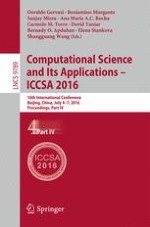2016 | OriginalPaper | Buchkapitel
MindDomain: An Interoperability Tool to Generate Domain Models Through Mind Maps
verfasst von : Alejo Ceballos, Fernando Wanderley, Eric Souza, Gilberto Cysneiros
Erschienen in: Computational Science and Its Applications -- ICCSA 2016
Aktivieren Sie unsere intelligente Suche, um passende Fachinhalte oder Patente zu finden.
Wählen Sie Textabschnitte aus um mit Künstlicher Intelligenz passenden Patente zu finden. powered by
Markieren Sie Textabschnitte, um KI-gestützt weitere passende Inhalte zu finden. powered by
